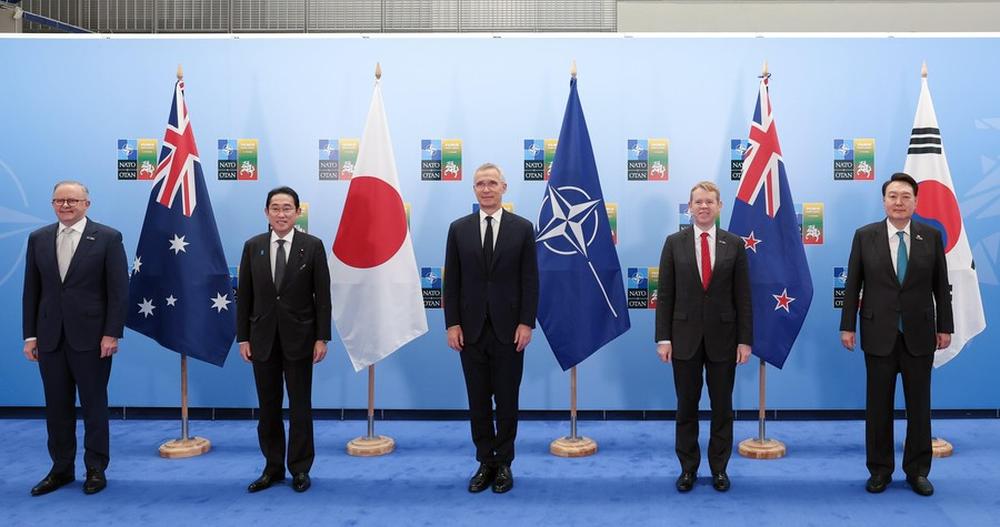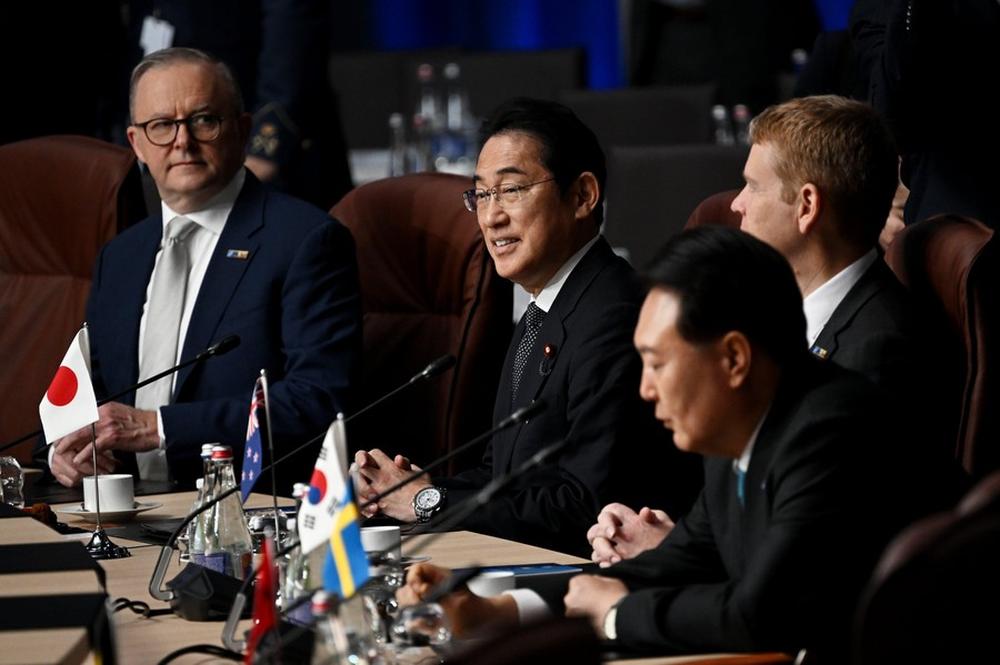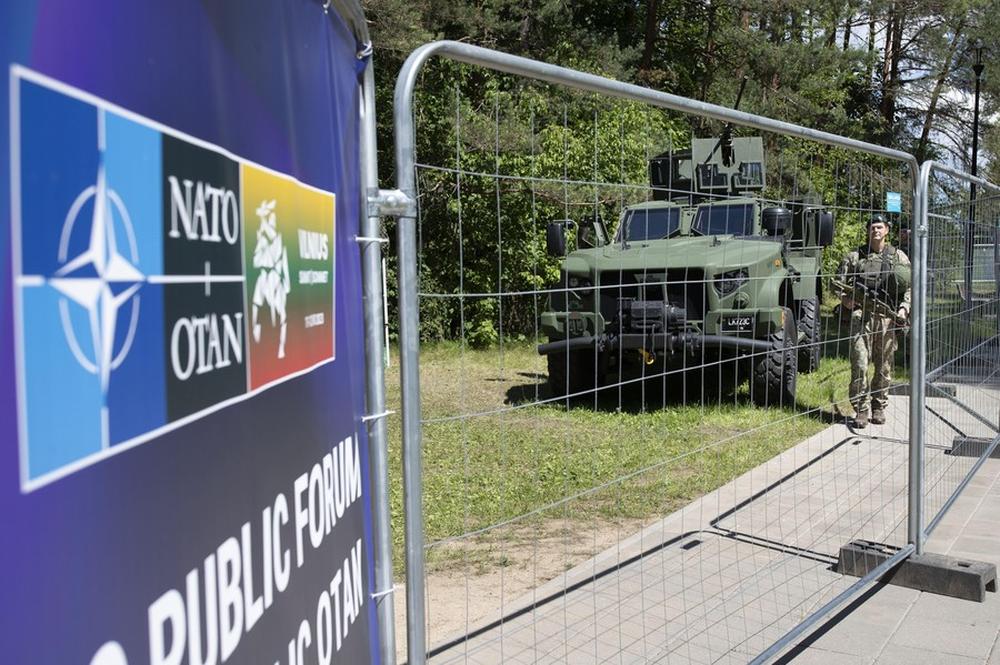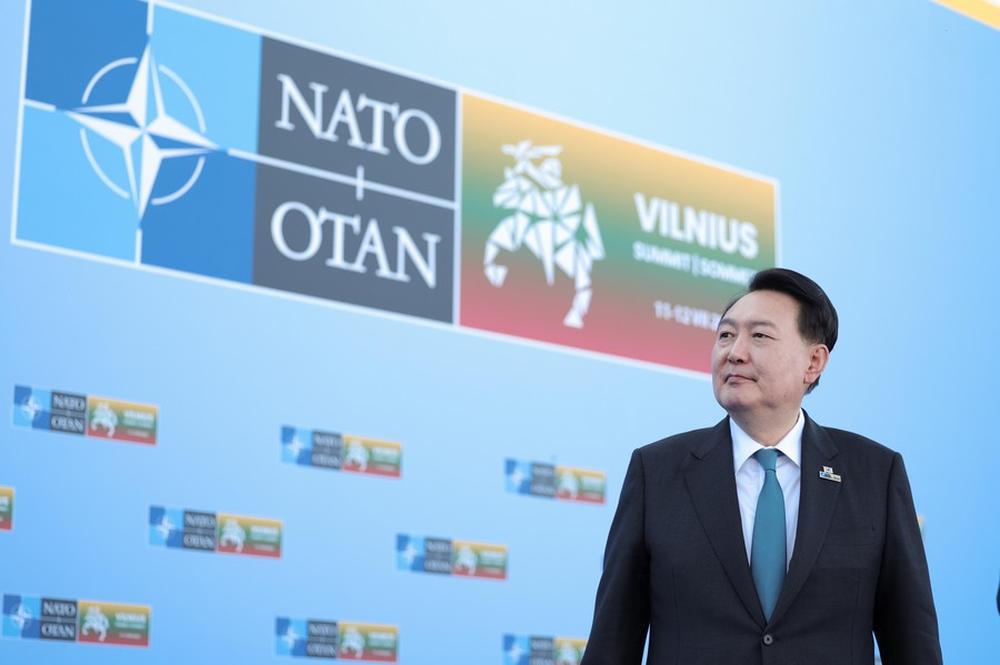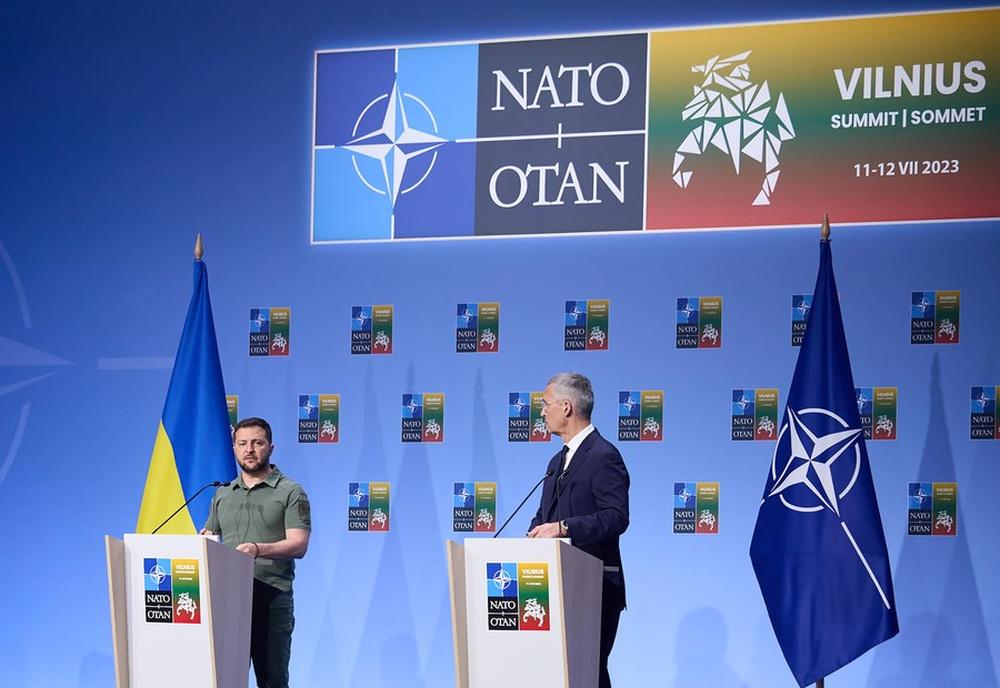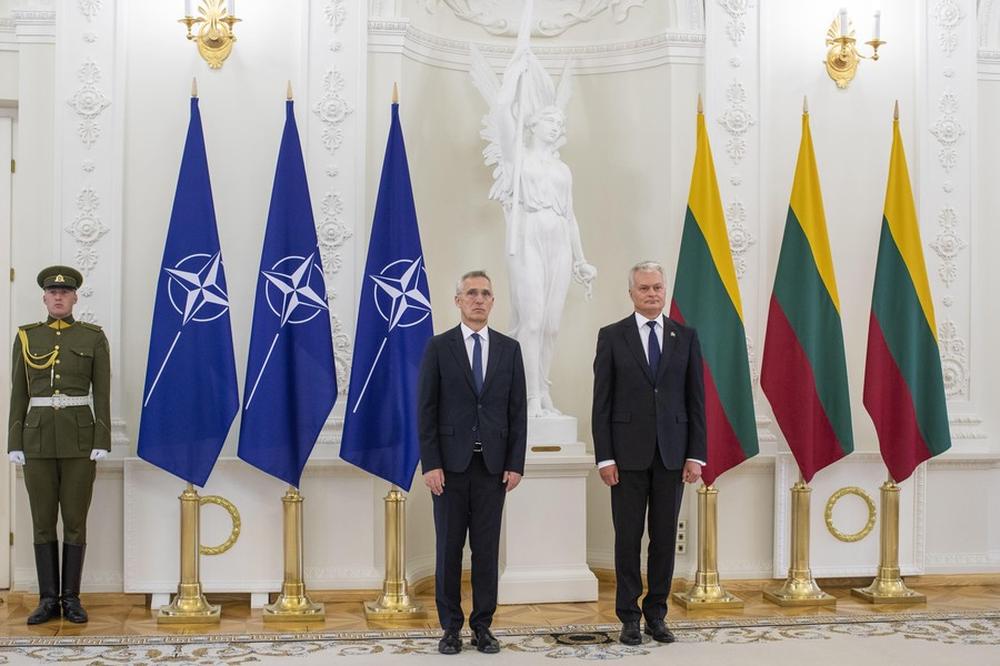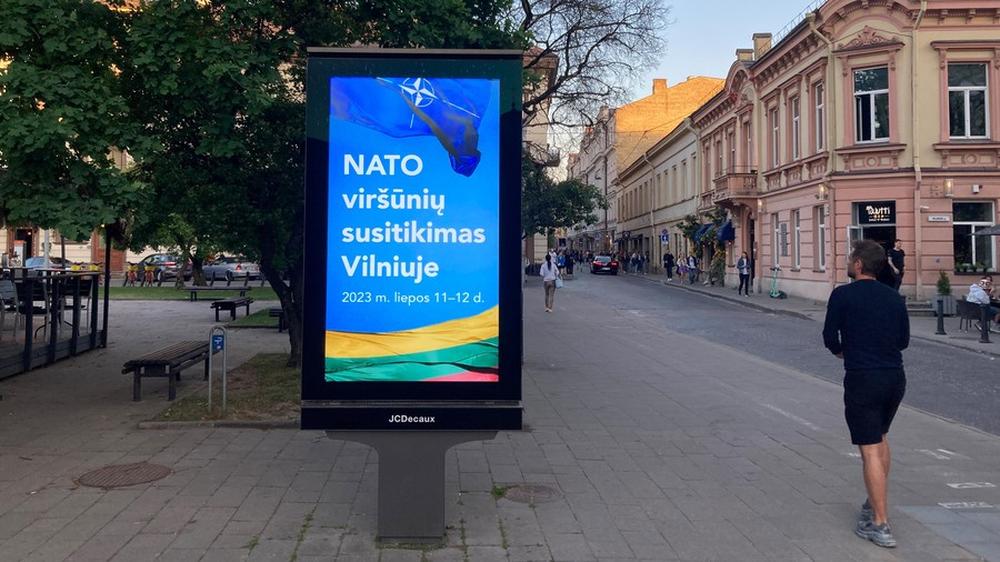- #Europe
- #Global Issues
- #Security & Defense
- #US Foreign Policy
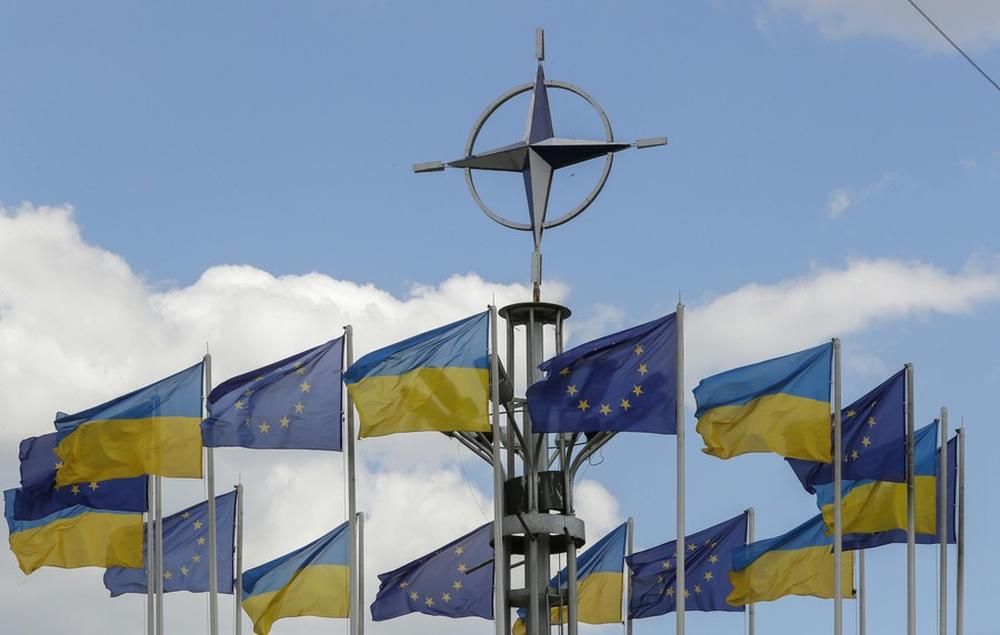
► The North Atlantic Treaty Organization (NATO) Summit that took place in Vilnius, Lithuania addressed several important issues that could shape the diplomatic and political landscape of Europe going forward.
► First, Turkiye's president, Recep Tayyip Erdogan, gave his final approval to Sweden's NATO membership. Second, at the NATO summit, the 32 member states agreed to develop a collective defense plan for the first time since the Cold War in case of military conflict with Russia or terrorism. Third, Ukraine's accession to NATO was set back. Lastly, the issue of China has led to disagreements among NATO allies.
► The failure of Ukraine to join NATO and disagreements among members over China show that NATO members still prioritize national interests over New Cold War factional logic. And Turkiye's strategic diplomacy during Sweden's NATO accession process can serve as a good example for South Korea as it seeks to become a global pivot.
On July 11-12, 2023, a summit of North Atlantic Treaty Organization (NATO) allies and partners took place in Vilnius, Lithuania. The meeting, which took place amidst a protracted war in Ukraine and a growing confrontation between a pro-Western camp led by the United States and an anti-Western camp centered on China and Russia, addressed several important issues that could shape the diplomatic and political landscape of Europe going forward.
First, Turkiye's president, Recep Tayyip Erdogan, gave his final approval to Sweden's NATO membership. Erdogan had been opposed to Sweden joining NATO because of Sweden's tolerance of the activities of the Kurdistan Workers' Party (PKK), which Turkiye considers a terrorist organization. Erdogan's stubborn stance was unexpectedly changed by the issue of Turkiye's accession to the European Union (EU). Speaking to reporters shortly before leaving for Lithuania, Erdogan said he would allow Sweden to join NATO on the condition that Turkiye pave the way for EU membership. Turkiye applied for EU membership in 1987 and was granted candidate status in 2004, but has yet to be granted full membership. In response, Erdogan secured a commitment from Sweden to actively support Turkiye's accession to the EU and to step up its response to anti-Turkish activities in Sweden, which ultimately led to Sweden's accession to NATO. In response, U.S. President Joe Biden issued a welcome message stating that the United States "stands ready to work with Turkiye to promote security and deterrence in the Euro-Atlantic region," and the U.S. Congress is expected to approve the sale of F-16 fighter jets to Turkiye (which has been suspended since 2019).
Sweden's accession to NATO will benefit both Turkiye and NATO. At the NATO summit, Turkiye demonstrated its diplomatic skills by bridging disparate issues to negotiate a deal. In exchange for his posturing, he received support for EU membership, a check on Kurdish militias, and the lifting of the arms embargo. Meanwhile, with Sweden's accession, NATO strengthened its control over the Baltic Sea, a vital maritime transportation route for both Western Europe and Russia, which borders Russia's second largest city, St. Petersburg. This is likely to significantly constrain the Russian Navy and Air Force's military activities in the region.
Second, at the NATO summit, the 32 member states agreed to develop a collective defense plan for the first time since the Cold War in case of military conflict with Russia or terrorism. According to the new 4,000-page defense plan, 300,000 highly-ready allied troops will be on the battlefield within 30 days of a contingency, and air and naval forces will be strengthened. Meanwhile, the number of troops deployed in the eastern region of the alliance, adjacent to Russia, will increase to 4,000. The plan also increases defense spending by NATO members to at least 2% of gross domestic product (GDP), with an agreement to spend at least 20% of defense spending on weapons development. Currently, excluding the United States, NATO allies spend only 1.74% of GDP on defense, and this unequal sharing of defense spending has been a point of criticism and discontent among allies. With conventional warfare once again on the rise in Europe following Russia's invasion of Ukraine, the plan once again highlights the need for increased defense spending by member states. Approval of the plan is intended to help NATO allies act more effectively together, and is expected to go a long way toward deterring future Russian attacks on its allies.
Third, Ukraine's accession to NATO was set back. The timing and terms of Ukraine's accession to NATO was one of the main agenda items of the meeting. Ukrainian President Volodymyr Zelensky, who was traveling to Lithuania for the summit, had hoped to reach a political agreement that Ukraine could join NATO after the war ended. However, in an interview with CNN, U.S. President Biden said that Ukraine is not ready to join NATO, stating, "I don't think there is unanimity in NATO about whether or not to bring Ukraine into the NATO family now, at this moment, in the middle of a war." In other words, the U.S. and Western Europe are likely to focus their policy on extending substantial military assistance to Ukraine rather than promising it immediate NATO membership. President Zelensky expressed his disappointment by tweeting, "It's unprecedented and absurd when timeframe is not set neither for the invitation nor for Ukraine's membership." In short, the U.S. and Europe have expanded their military support for Ukraine and strengthened their military alliance against Russia with this decision, while not closing the door on negotiations with Russian President Vladimir Putin. The decision was driven by a realistic judgment that Ukraine's NATO membership could unnecessarily provoke Russia while the war is far from over.
Finally, the issue of China has led to disagreements among NATO allies. In May, NATO proposed to open the Tokyo office to strengthen security cooperation with democracies in the Indo-Pacific region in the face of an escalating confrontation between the United States and China. It was hoped that the Tokyo office would serve as a hub to connect NATO with its Asian partners, including South Korea, Japan, Australia, and New Zealand, to counter China's rise. However, French President Emmanuel Macron publicly opposed the opening of the Tokyo office, stating that "NATO's expansion into the Asia-Pacific is a big mistake." As a collective defense system of the United States and Europe, NATO's expansion into the Indo-Pacific region would be a departure from its original purpose and could provoke China and threaten the security of NATO allies.
In sum, at the NATO Summit in July 2023, a collective defense plan was established and Sweden's accession to NATO was approved, further strengthening NATO's pressure and deterrence against Russia. However, the failure of Ukraine to join NATO and disagreements among members over China show that NATO members still prioritize national interests over New Cold War factional logic. And Turkiye's strategic diplomacy during Sweden's NATO accession process can serve as a good example for South Korea as it seeks to become a global pivot.
Hyun Jin Choi, Ph.D. (Michigan State University, 2012), is an Associate Professor in the Department of Political Science at Kyung Hee University, Seoul. Professor Choi’s research interests fall within the field of international security, civil war, and international development cooperation. His articles have been published in numerous refereed journals, including Global Environmental Change; International Studies Quarterly; Democratization, Comparative Politics; Research and Politics, and Journal of Conflict Resolution.
